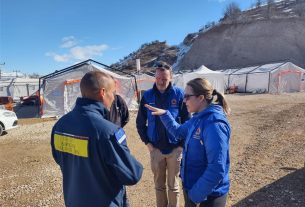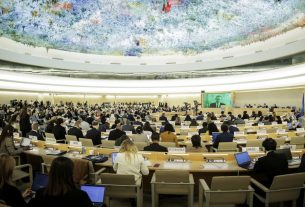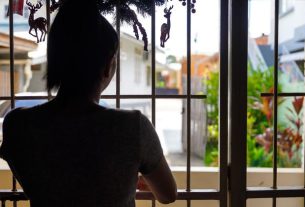(Beirut) – The Jordanian government is forcibly evicting the Bedul, a group of Bedouins from Petra, in clear violation of their economic, social, and cultural rights, including their right to housing, Human Rights Watch said today. Jordanian authorities should immediately reverse measures that have made residents’ homes unlivable and should conduct meaningful consultations with the Bedul to secure the community’s consent to any future relocations.
To force residents to vacate the area, Jordanian authorities are engaging in coercive measures, including cutting water services and suspending some salaries and social security payments. Jordanian authorities are also arbitrarily detaining residents without charge and making their release contingent on consenting to eviction.
“Jordan’s displacement of the Bedul from their historic homes in Petra puts their culture at risk,” said Adam Coogle, Middle East and North Africa deputy director at Human Rights Watch. “The Jordanian government should halt the relocations and respect the rights of Petra’s Bedouin community.”
Authorities justify recent actions in Petra, including the removal of what they describe as “encroachments” and “violations” of the well-known archaeological and global tourist site, as necessary to the site’s integrity and visitor safety. While officials frame these actions as part of efforts to sustain Petra for future generations, residents told Human Rights Watch that local authorities are employing coercive tactics, including suspending water services and arbitrarily detaining individuals, which locals believe are intended to pressure families into vacating the area.
Jordanian authorities launched the first wave of forced relocation of the Beduls under the guise of preserving Petra’s archeological site after Petra’s classification as a United Nations Educational, Scientific and Cultural Organization (UNESCO) World Heritage Site in 1985. The current wave began in late 2024 and targeted around 25 Bedul families living in caves and tents in Stooh al-Nabi Harun Mountain (al-Stooh).
Human Rights Watch visited al-Stooh in June 2025, spoke to residents, and reviewed footage of interviews with the residents along with court documents. Authorities came to al-Stooh on July 2, 2025, and expressed their intention to expedite the eviction and relocation, a local source said, actions residents believed were retaliation for speaking out publicly.
Human Rights Watch wrote to the Jordanian government and UNESCO on July 1 and May 21, 2025, respectively, outlining concerns and asking questions, but has not received a response.
Fares al-Braizat, Chair of the Board of Commissioners of the Petra Development and Tourism Regional Authority (PDTRA), the government body that manages the archeological site, confirmed earlier phases of the eviction campaign, describing the eviction of families from their caves and the removal of their kiosks as part of a plan “to enhance the rule of law” and eliminate “sources of threat” to visitors and the touristic site. In an undated announcement on the Jordanian Ministry of Tourism’s website, he referred to residents as “vandals and violators.”
Since late February, authorities have taken measures that undermine al-Stooh’s habitability and residents’ basic rights, residents told Human Rights Watch. These include cutting the supply of water and suspending salaries and social security payments for PDTRA employees.
An 82-year-old woman still living in her cave said that they can no longer water their fruit trees, damaging their crop and forcing them to spend money on food items they did not previously need to purchase.
To secure water for drinking and cooking, residents said they must now either commute to Um Sayhoun, over three kilometers away, and ask people to fill their jerrycans, or fetch water from a nearby stream. “We send the kids on donkeys to bring jugs of water from the stream where restaurants dump their waste,” another resident said. “The water is bad and polluted and makes us sick.”
Residents told Human Rights Watch that the water supply was partially restored on June 29 but remains limited to no more than four hours a week, significantly less than what was previously available and insufficient to address the community’s needs.
PDTRA filed criminal charges against at least three men in December 2024. One charge sheet reviewed by Human Rights Watch accused one of the men of carrying out unlicensed tourism-related activities, including using an archaeological cave site as his residence without authorization. According to the accused, they paid fines and the case was closed. However, the PDTRA has since filed an identical case against the same three men, with the first trial session held on July 15.
In 2023, authorities demolished a resident’s kiosk in a nearby area in the archeological site, without notice or compensation, for operating without the necessary authorization.
According to residents, authorities intend to relocate them to a housing complex in a remote area – more than seven kilometers away from family members and markets – without reliable public transportation. An older woman who was relocated to the new housing complex in November 2024 told Human Rights Watch that her family had not had fresh vegetables in over two days because they cannot afford the cost of transportation to and from the nearest market.
According to residents, this new location is also unsuitable for raising cattle or farming, traditional labor practices that are both essential for their income and deeply tied to their culture.
Historic accounts of the Bedul’s way of life show that herding cattle and seasonal cultivation of barley and native plants have long been central not only to their subsistence and income but also to their cultural identity. These practices, along with oral storytelling, tent-making, and traditional ecological knowledge, are recognized by UNESCO as the “cultural space” inscribed in 2008 on the Representative List of the Intangible Cultural Heritage of Humanity, an essential element of the site’s living heritage. Displacing the Bedul severs their connection to the land and threatens this cultural legacy.
Jordanian authorities, UN agencies, and other relevant actors should consider formally recognizing the Bedu as an Indigenous people in line with international standards, including the UN Declaration on the Rights of Indigenous Peoples.
Human Rights Watch found that authorities did not adequately consult affected Bedul. Failure to consult has resulted in the government providing a single housing unit consisting of a living room, a kitchen, one bathroom, and two bedrooms for each head of household. This does not reflect the needs or complexities of the Bedul’s large, multi-generational, and multi-household families. International standards require authorities to seek free, prior, and informed consent of Indigenous peoples before any relocation from their lands and also require agreement on just and fair compensation.
The Bedul clan has lived in caves and tents around Petra since the beginning of the 19th century, according to an ethnohistoric study published by Jordan’s Department of Antiquities. The Bedul clan is one of several Bedu (Bedouin) clans living in southern Jordan, particularly around Petra and Wadi Rum.
The cultural space of the Bedu is protected under the Convention for the Safeguarding of the Intangible Cultural Heritage. Jordan has a responsibility to refrain from any act to harm the integrity of the cultural space of the Bedu in Petra.
Under international human rights law, states should explore all feasible alternatives before carrying out evictions, particularly those affecting large groups, and should consult with affected residents. Jordanian authorities did not conduct meaningful consultations with the affected community, including women and children, about the impact of any potential change on their land, livelihood, food security, culture, and education.
“Jordan can’t claim to protect Petra’s living heritage while sidelining the very community that embodies it,” Coogle said, “It should work, together with UNESCO, to uphold the rights of the Bedul and ensure their full participation in the shaping of the future of the site they’ve called home for generations.”


